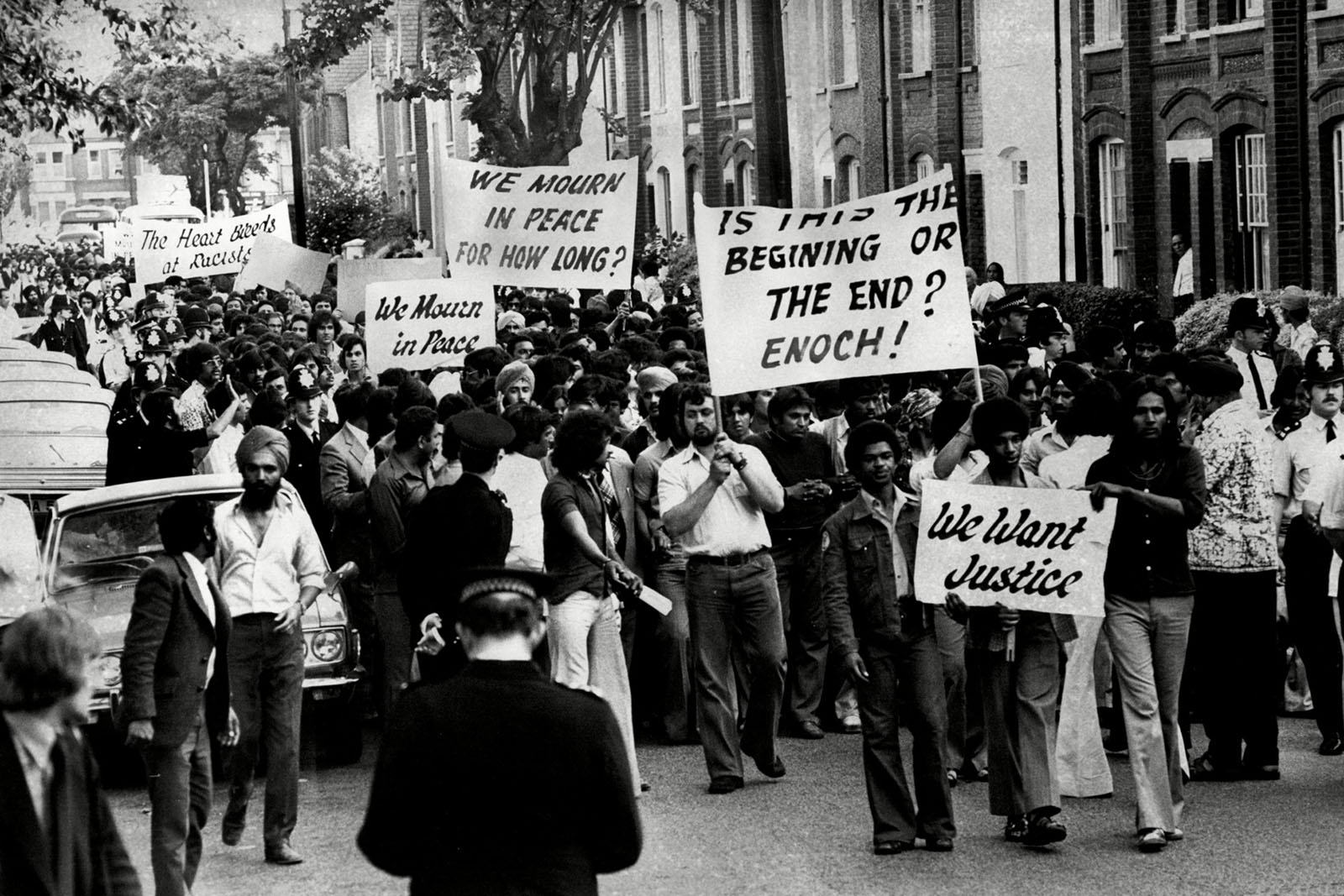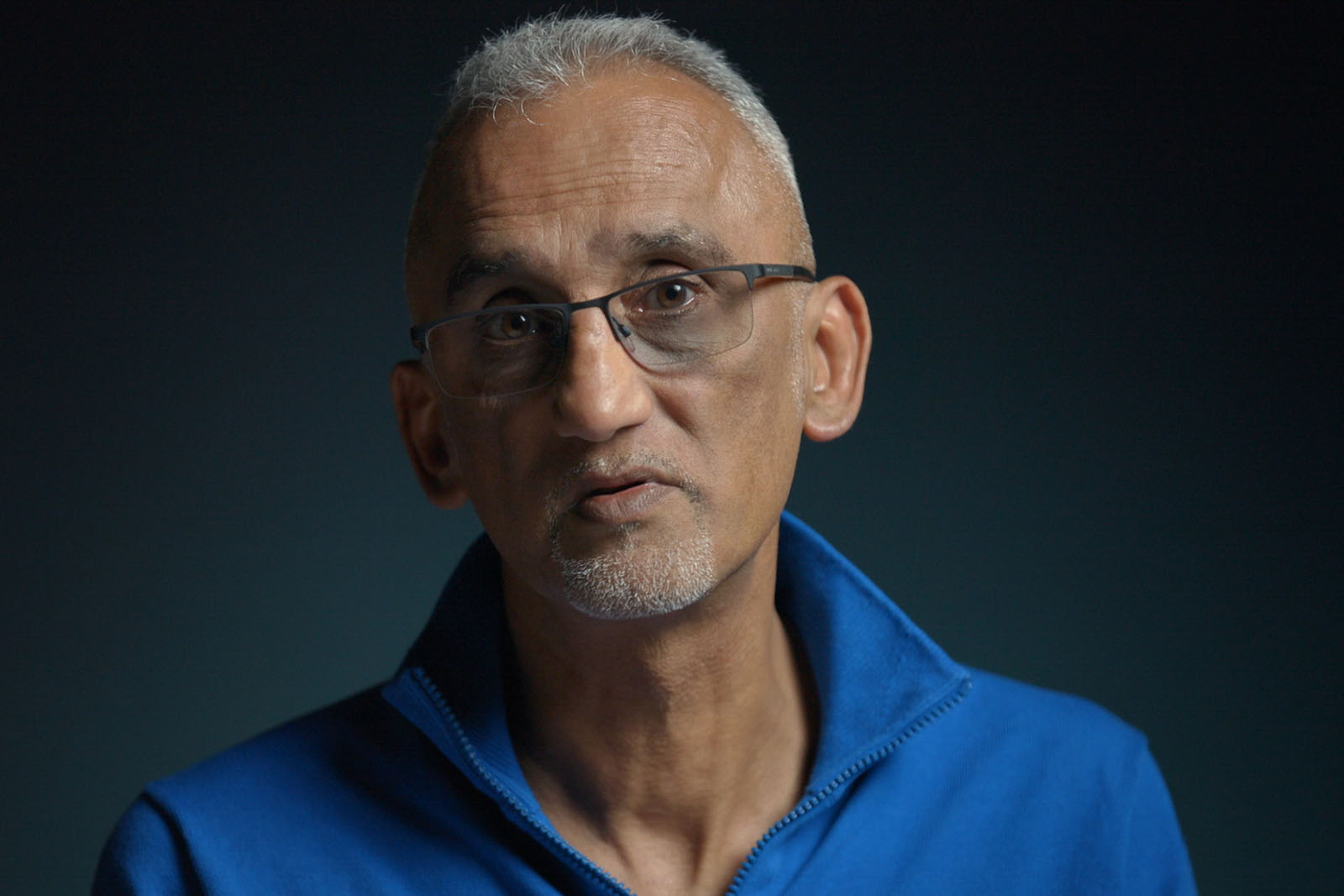New documentary tells the story of the British Asians who fought the far right
Decades on, Channel 4 is chronicling a historic struggle against the National Front
–

On the morning of 5 June 1976, blood stained the pavements of Southall in west London. The victim was Gurdeep Singh Chaggar, an 18-year-old Sikh boy who was fatally stabbed by white youths the night before.
In a new, three-part Channel 4 documentary, Defiance: Fighting the Far Right, Suresh Grover, now 69, recalls asking a nearby policeman what had happened, but was dismissed and told that it was “only Indian blood”. The unprovoked killing inspired the formation of the Southall Youth Movement, which began a five-year-long campaign against skinhead gangs and the National Front across the country, led by British Asians including Grover.
These forgotten stories of how British south Asians fought back against the far right in the 70s and 80s are now being told in Defiance. Produced by Rogan Productions, Riz Ahmed’s Left-Handed Films and GroupM Motion Entertainment, the series brings together previously unheard eyewitness accounts of far-right attacks that took place in Southall, east London and Bradford, unearthing evidence around police misconduct towards south Asian communities.
Defiance also revisits the 1979 police killing of 33-year-old teacher Blair Peach, which is now being investigated as part of the Undercover Policing Inquiry focusing on officer misconduct in England and Wales dating back to 1968. The final episode looks at the landmark case of the Bradford 12, part of the United Black Youth League, who monitored the Bradford area for far-right activity.
On 11 July 1981, they were charged with “conspiracy to make explosives and endanger lives”, for manufacturing but not using Molotov cocktails. They were acquitted after successfully arguing they had the right to take proportionate, defensive action against an anticipated far-right rally in Manningham, Bradford, following a firebomb attack that had killed a family of five in Walthamstow, east London, 10 days before.
“We felt it was important to tell both the Blair Peach story and the story that sometimes gets missed, which is about what happened to that generation in Southall,” says director Satiyesh Manoharajah. “Three thousand police were sent to this little town — which is enormous. Some 700 were arrested and 342 charged. You had a whole generation that was criminalised, all because of this one protest, where people just wanted to register that they didn’t want the National Front right in the middle of Southall.”
The south Asian stand against fascism has not been shown to a prime-time TV audience before. As a result, Manoharajah explains, a whole chapter of British history has remained unknown to the wider public.
“We’re never told the civil rights story in Britain through the eyes of south Asian people. In school, we all get taught American civil rights,” he says. “I did history and I can tell you all about the Alabama incidents and the bus boycotts and strikes.”
To set the record straight, Manoharajah wanted to “interview the people who had that fight with the National Front on the streets. It’s funny, because you meet them now and they all look like aunties and uncles you’d see on the bus.”
Grover, who is now a co-director at Southall-based anti-racist campaign organisation The Monitoring Group, was at the Whitechapel Gallery, east London, on 6 April for an event to mark the release of Defiance. Reflecting on the atmosphere at the time, he said: “Police wouldn’t talk to us, older generations wouldn’t hear us. The street was for me the only [place] where we could make a statement.”
Grover told the audience that the documentary’s release “was very emotional, because there are people who should’ve been a part of this, lots of testimonies that should’ve been given, but 40 years later those people have died.” He added: “There’s unfinished business because we know a police officer killed Blair Peach, and he’s still walking the streets.”
In recent years, British-Asian unity has notably diminished, Grover remarked, referring to the violent clashes in Leicester between Hindu and Muslim men that took place in 2022.
“We were all together in my generation: Hindu, Muslim, Sikh,” he said, adding that the memory of that period was still alive today and can act as a unifying force.
“Southall commemorates Gurdeep Chaggar’s death every year,” he said. “Testimonies of past struggle galvanise a new Britain.”

Masud Malik, 61, was one of the Bradford 12 and also appears in Defiance. He was just 14 when he realised that racism had to be challenged head on. “What sticks in my memory is that there was a whole line of police across this middle school defending white racists with their kids, who were hissing and spitting vile abuse,” he said. “That’s when my thinking started to change.
“England was burning with all the riots. You could feel that something was coming to a head. We couldn’t just sit back and not do anything and let the fascists, the racists, run riot.”
The main question that lingers for Malik is why his story has remained largely unheard for four decades. Until now, his own children knew little about the events of 1981. “It was an eye opener for my children. It probably took that documentary for them to really know,” he added.
“Time’s elapsed now, and it’s getting its rightful place.”
Defiance: Fighting the Far Right aired on Channel 4 and is available to watch online.
Topics
Get the Hyphen weekly
Subscribe to Hyphen’s weekly round-up for insightful reportage, commentary and the latest arts and lifestyle coverage, from across the UK and Europe
